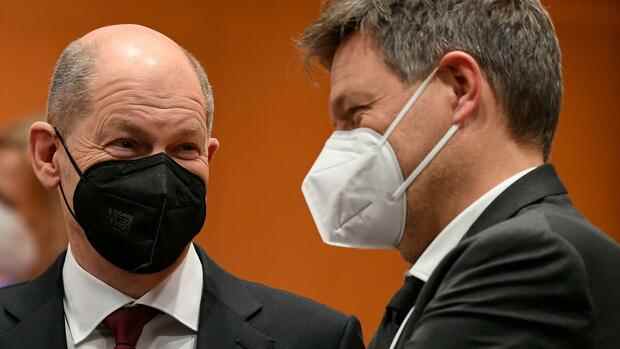It was last Monday when a handpicked group of top German managers met with Federal Economics Minister Robert Habeck. The title of the invitation to the Federal Ministry of Economics on Scharnhorststrasse was: “The transformation of the German economy: opportunities and challenges”. That sounded familiar at first, but then the 17 CEOs talked tacheles at the table.
The who’s who of German industry was among the companies. Representatives from Daimler, Siemens and Porsche were there as well as from Eon, RWE, Lufthansa, Thyssen-Krupp, Deutsche Bank and BASF. Of course, the German state-owned companies Telekom and Bahn were also present. One felt reminded of the old Germany AG.
It was noticeable that almost the world’s largest automotive group, VW, was missing – although Habeck also had the topic of electromobility on the agenda. No competitor relies so consistently on the electric car as the Wolfsburg group.
The minister is said to have been a little proud of having brought the industrial heavyweights to the table. Habeck and his staff eagerly took notes, which will no doubt be reworked in the ministry.
Top jobs of the day
Find the best jobs now and
be notified by email.
In addition to electric mobility, the focus was on the decarbonization of Germany, the use of the steel industry and the digitization of the country. So, as the Handelsblatt found out from the group, it was not a suggestion box event for the respective company. It was about the future of Germany.
>>> Read here the big Handelsblatt interview with Federal Minister of Economics Robert Habeck
As far as the goals are concerned, the managerial elite and politicians agree. Only the way to get there is controversial, and the managers are primarily concerned with the question of costs. As unanimous as the goals were, the bosses of industry differed in terms of costs. While the energy suppliers see new business, companies like the steel group Thyssen-Krupp are having a hard time with it. Habeck visited the steel giant this Tuesday.
competition for the chancellorship
The meeting seemed to participants like a rival event to Chancellor Olaf Scholz’s announcement that he would convene an “Alliance for Transformation” in the spring. Ministry officials point out that there are already structures in Habeck’s ministry with the “Alliance for Industry”. Scholz apparently does not want to leave this field to his deputy. Together with business, trade unions and associations, he wants to talk about stable and reliable framework conditions for the conversion of the energy supply.
Habeck apparently didn’t want to be on the sidelines and took the initiative. A second meeting is already planned for the summer. Party strategists see it as a race to see who will be the new “comrade of the bosses”. Habeck sees the position of economics minister and vice chancellor only as a stepping stone. He certainly has his sights set on the next election date in 2025 and is visibly trying to build up a network in the economy.
So Robert Habeck takes a broad approach. While economic skepticism is quite pronounced in parts of his party, he wants to be able to win a majority. For this he needs comrades-in-arms in the executive floors. That was also the impression in the group.
He didn’t just select his civil servants according to internal party proportional representation. With Anja Hajduk and Sven Giegold, two absolute political professionals sit at his side. The other two State Secretaries, Udo Philipp and Patrick Graichen, are recognized experts in their fields: Philipp on finances, Graichen on climate policy. All strong employees, with whom he wants to get the chancellery for the Greens next time.
More: Care: Robert Habeck embraces the economy
